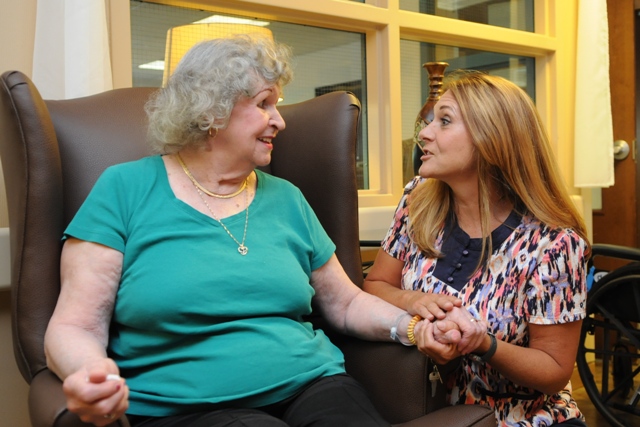Senior Care Lingo: Defining the Terms (Oct. 2016)

In today’s senior care/senior living landscape, it seems like there are SO MANY terms and expressions that one can easily become confused or overwhelmed. And as much education as we try to provide, we still get a lot of questions about the different terminology.
Here are some commonly-asked questions we get at Concordia from families and individuals just starting their search for senior care services or a retirement community.
Q) What are the Activities of Daily Living?
Activities of Daily Living (ADLs) include bed mobility, transferring (i.e. moving from your bed to a wheelchair), walking, dressing, eating, toilet use and personal hygiene. Some people receive these services in their homes, but many decide to move to a retirement community, especially if they only need a very small amount of help. Others who need more help choose to move into a personal care or assisted living facility.
Q) What is long-term care?
Generally speaking, long-term care could include any variety of services designed to meet the individual needs of a person for the rest of their life. This often includes the assistance of another person to help perform their ADLs. For example, in long-term skilled nursing care, a resident typically requires a higher level of around-the-clock care from various healthcare professionals – including a medical director, nurses, therapists, social workers, dietitians and many more. But in personal care/assisted living, the focus is more on assistance with things like bathing and personal hygiene, mobility assistance, preparation of special nutritional meals or diets, housekeeping, laundry and more. The differences between those two care levels (skilled nursing and personal care/assisted living) are significant, but both are generically called “long-term care.”
Q) What is the difference between personal care and assisted living?
This is a tricky question to answer, because each state has different regulations for determining what an official Assisted Living Facility is. Since Concordia’s headquarters and most of our locations are in Pennsylvania, we’ll give you the PA response: In the past, the two terms were used interchangeably in PA; however, in 2013 the state changed some things. According to the PA Office of Long-Term Living, “assisted living” facilities must now earn licensure by adhering to a number of new regulations, while “personal care” facilities will have the same oversight they have always had. Concordia chose to keep the Personal Care designation in Pennsylvania. While there are several smaller regulatory differences with the new assisted living regulations, there are three primary differences for a facility to have official assisted living status in PA:
- Assisted living units must have “kitchen capacity.” (Concordia Personal Care facilities provide three meals a day and offer snacks throughout the day to decrease the need and desire to have an individual kitchen. The regulation also requires that the resident be provided with a sink in order to wash dishes. While all of our facilities do have a sink available in the living unit, we have met few residents with the desire to do the dishes.)
- Assisted living units must be 100 percent private and include a private bathroom, unless residents request or agree to have a roommate. (The majority of Concordia’s personal care beds are private. However, we believe that having various options of room sizes and accommodations affords current and potential residents more choices, including lower-cost options.)
- Assisted living facilities must allow residents to “age in place” without having to move to a licensed long-term care facility when their needs increase.
Q) What does the term “aging in place” mean?
Aging in place refers to living in the least restrictive environment for as long as possible – whether that is in your house, receiving assistance from a family member or home care aide; a retirement living apartment, receiving assistance from a visiting nurse or home care aide; or even a personal care home, receiving assistance from a visiting nurse or residential nurse aides. It’s a philosophy that Concordia has adopted for years now. We believe that by helping people stay as independent as possible for as long as possible, we can save them thousands of dollars, while maintaining a higher quality of life.
Whatever senior care services you are looking for in western PA or eastern OH, whether for yourself or your loved ones, check out what all of the Concordia locations and home care services can provide for you. With a wealth of care levels and services, finding the right fit for your needs is easier than ever. Call our administrative headquarters at 724-352-1571 or message us through our online contact form to ask about what Concordia can do for you.
Get Updates From Concordia
There is always a LOT happening at Concordia! Would you like to stay up-to-date with our news and events? Sign up for our monthly e-newsletter here.